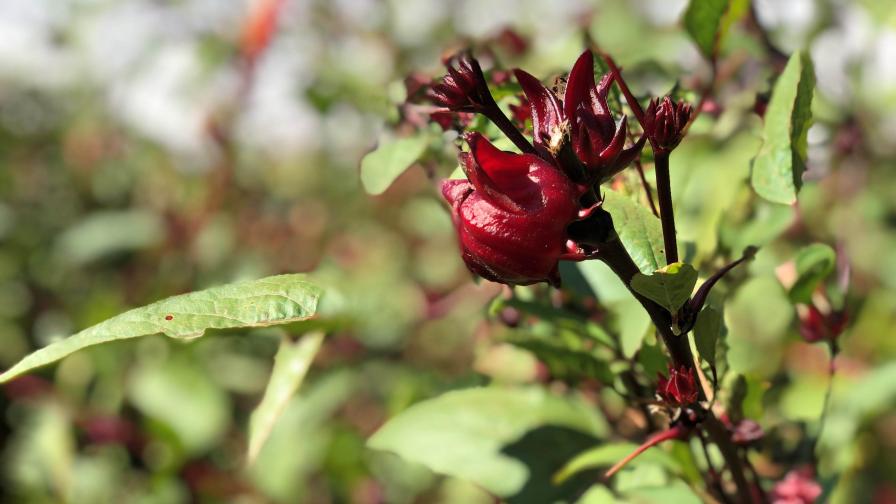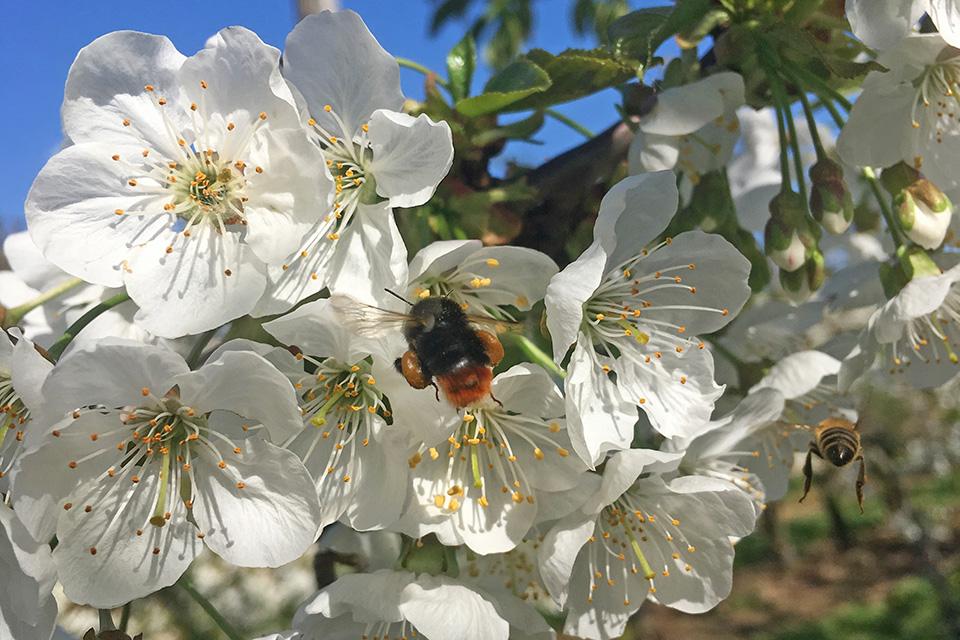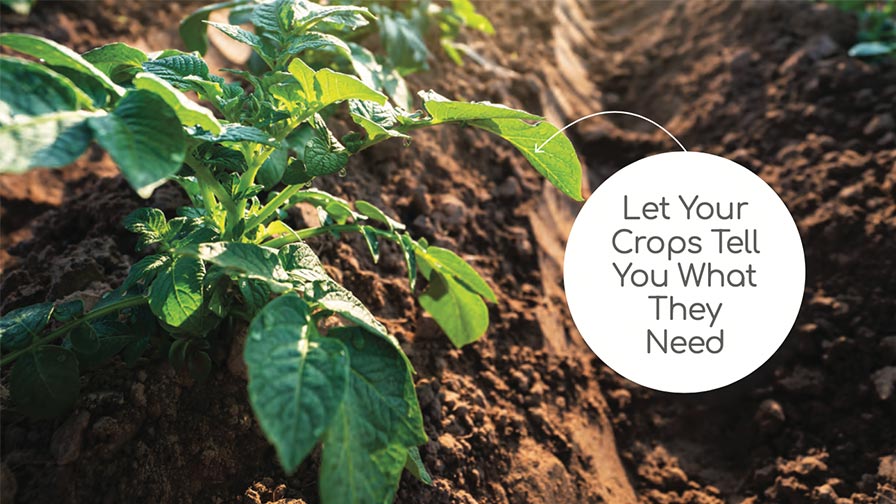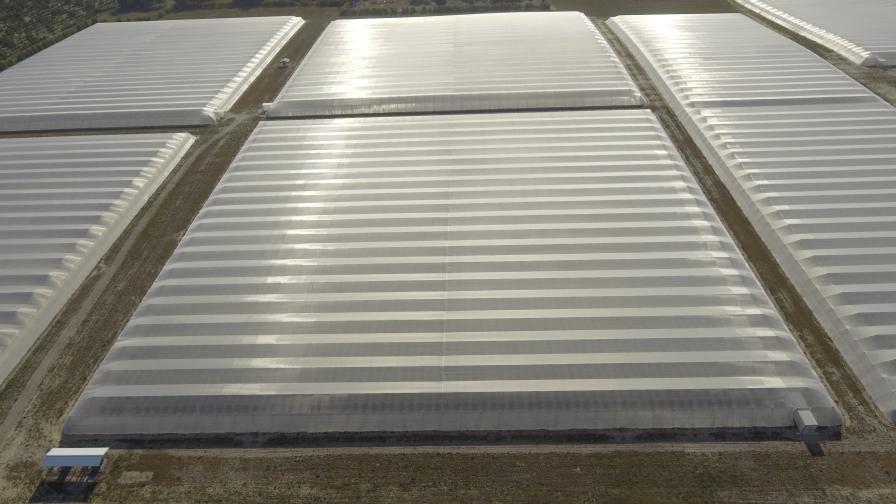Niche Crop With Caribbean Flare Might Be Fine Fit for Florida Growers

With its attractive blooms, there’s no surprise sorrel is a relative of Hibiscus. Can this Caribbean-grown culinary crop take root in Florida?
Photo courtesy of UF/IFAS
Just when you think Florida’s alternative crop basket has reached its capacity, along comes another interesting selection. Now serving … sorrel!? Yes, the leafy green plant with reddish-pink flowers is hardy, fast growing, and has a variety of uses, according to UF/IFAS researchers who are investigating its potential as a new food crop for the Sunshine State.
In fact, UF/IFAS Extension agents have been working in collaboration with the University of the Virgin Islands and Central Florida farmers in cultivating two research plots of sorrel to understand its potential for commercial viability. The work is being funded by a USDA Sustainable Agriculture Research and Education grant.
Sorrel, a relative of okra, cotton and hibiscus, is commonly grown in the Caribbean islands and a common ingredient in local food and drinks. Sorrel flowers are used in teas, juices, beer, and wine, lending a tart flavor. Jams and pies also are popular ways to incorporate the plant. In addition, the leaves can be used in salad mixed green blends or sautéed — similar to spinach or arugula.
Despite its island vibes, sorrel is native to Africa. And if you’ve never heard of sorrel, perhaps you might be more familiar with some of its aliases — roselle, Florida cranberry, or Jamaican sorrel.
A recent field day held in Lake County, FL, revealed preliminary findings and input from farmers growing the crop. “In the Virgin Islands, we’re lucky if the crop gets to be three to four feet tall,” says Thomas Zimmerman, Assistant Director of the Agricultural Experiment Station at the University of the Virgin Islands. “When I visited the research sites in Florida in September, the crop was already taller than me.”
Studies are shining a light on the production traits of sorrel. Pest pressure is low — a bonus for Florida. Excess moisture can cause some disease issues, but overall, the crop has flourished, researchers note. Planted in the summer, the crop bears multiple harvests from September to first frost.
Sorrel is a super easy crop for Florida growers, remarks Aubrey Cash, owner of Dirty Dog Organics in Leesburg. “The resilience of these plants is remarkable,” she says. “I plant this crop and walk away. The overhead is low, the sales are high, and this has been highly profitable for our farm.”
Data analysis from the research trials will begin later this year. Another crop will be planted next year, which will provide official results on production methods, cost of production, yields, and income projections. Results will eventually be made available in UF/IFAS publications and journal articles.
Stay tuned.








